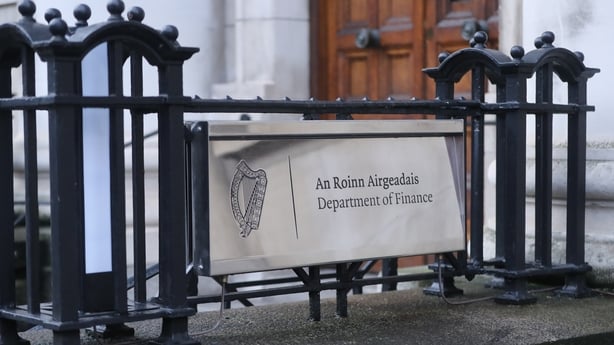As government formation talks continue, politicians have received the latest insight into the health of the economy.
On the face of it, there is little to worry about, but beneath the surface it is a very different story.
The figures from the Department of Finance give a full picture of the amount collected in taxes last year.
With the jobs market firing on all cylinders, the Exchequer returns show income tax yielded €35bn which is up 6.6% on the previous year.
Consumer spending is also performing well as VAT reached €21.8bn an increase of 7.3% and excise is ahead by 12% at €6.3bn.
Highly profitable multinationals are driving a surge in corporation tax, which was up 18% at €28bn and that was before the €11bn raised so far from the Apple's tax case is included.
Government spending came in just under a billion lower than forecast at €103.7bn although it was 9.5% up on 2023.

The Department of Finance warned that "a small handful of large, highly profitable firms are not a sustainable tax base on which to build permanent spending commitments".
The key issue is that without the windfall corporation tax receipts, Ireland would not be running a surplus but a deficit.
While the Government is setting aside about one third of those excess funds from multinationals in two long terms savings funds, economists argue Ireland is exposed.
That concern is heightened as incoming US President Donald Trump proposes to change the US corporation tax regime and introduce tariffs on goods from the EU.
In an interview with RTÉ News, Minister for Finance Jack Chambers indicated that any new spending plan, which will be agreed in government formation talks, needs to take account of the shifting positions in Washington.
He said "tariffs, protectionism and deglobalisation all present significant risk to the Irish economy and we need be cognisant of that for any spending plan".
The temptation is for politicians to continue to use transient tax receipts for day-to-day spending.
If those funds dry up, ministers would have to make painful decisions to cut expenditure.







